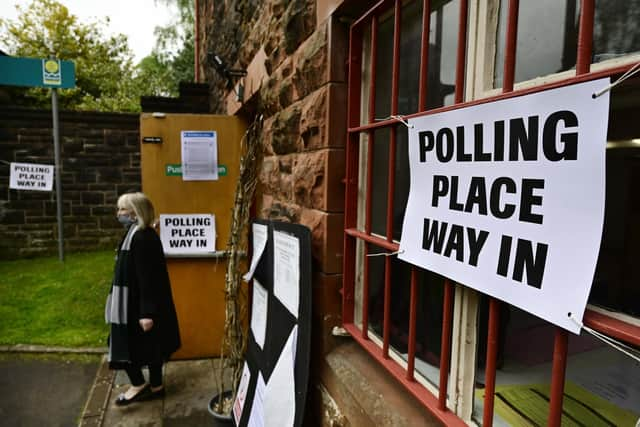Elections Scotland: How Elections Bill will improve fairness and transparency - George Adam
This month marks the 110th anniversary of Ethel Moorhead becoming the first suffragette to be force-fed after hunger-striking over her beliefs.
Her indomitable spirit while imprisoned at Edinburgh’s Calton Gaol – now home to the Scottish Government’s St Andrew’s House building – was instrumental in winning the vote for women, a right that has significantly enhanced democratic processes in the years since.
Advertisement
Hide AdAdvertisement
Hide AdThe shared philosophy and passion that Ethel and all the suffragists held dear – that democracy should reflect the people it seeks to serve – is as true today as it was then.


Democracy is not a static concept, and the newly published Scottish Elections (Representation and Reform) Bill represents the latest contribution to the modern and progressive country we live in. While the Bill may not be making such radical changes to the electoral landscape as those that followed the suffragette movement of a century ago, it will help our democracy evolve to meet modern standards and expectations.
The Bill proposes changes to campaign rules for elections to improve fairness, transparency and controls against foreign spending and includes provisions to encourage the piloting of electoral innovations, such as aids to help people to vote and accessible forms of communication like digital polling cards. The legislation also strengthens the powers to protect campaigners and electoral workers from intimidation, with those committing offences involving intimidating campaigners and electoral workers facing being banned from standing for election for five years.
The Bill, which will now be scrutinised by Parliament, also provides powers for elections to be rescheduled in emergencies, for example a Covid-style health emergency, and foreign nationals living and working in Scotland on a time-limited visa would become eligible to stand as candidates in Scottish Parliament and local government elections – in addition to their existing voting rights.
It is important that as many people in our society as possible feel they have an effective and independent means to hold government to account and feel encouraged to take an active interest in politics and civic life including voting and standing for elections, which is why the Bill also proposes to allow ministers to provide funding to drive up democratic engagement.


And, while the Bill does not propose extending candidacy rights to 16 and 17-year-olds, that is a direct outcome of extensive consultative work on the part of the Scottish Government in advance of the Bill. We reflected on the responses we heard, and they were overwhelming that this is not the right time to do this.
Concerns raised included the need to ensure appropriate safeguarding and support was in place for young people, potential exposure of young people to intimidation, and practical issues including working hours and the right to prioritise education, which was raised by some consultation respondents. Notwithstanding this, I am immensely proud of what devolved Scotland has done to enhance the democratic rights of young people in this country, ensuring 16 and 17-year-olds can in Scottish and council elections.
Ultimately, a robust electoral system is fundamental to the success of Scotland being an inclusive and vibrant democracy that makes everyone feel included and empowered.
Advertisement
Hide AdAdvertisement
Hide AdEveryone living in Scotland should have a say on how Scotland is run and the wide-ranging measures in this Bill share the common thread of empowering everyone with an interest in improving democracy. We have come a long way in the last century. This legislation and the steps we are taking now to improve democracy, openness and transparency are a fitting legacy to the journey that started back then, paving the way for a future of electoral improvements.
- George Adam is the minister for parliamentary business
Comments
Want to join the conversation? Please or to comment on this article.